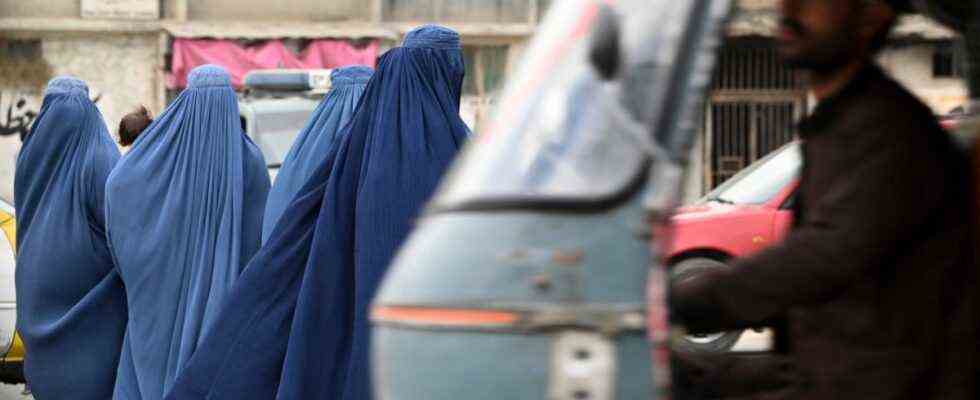Monika Hauser, 62, has been fighting for women’s rights around the world for 30 years. In the 1990s she founded the organization Medica Mondiale, and in 2008 the doctor received the Alternative Nobel Prize. But at the moment she’s fighting for one thing above all else: For the safety of the 90 women’s rights activists who work for the Afghan sister organization. They are holding out in Kabul, but their future is uncertain.
Ms. Hauser, what news are you getting from your colleagues in Afghanistan?
The situation in Kabul is escalating every hour. I have just spoken to a colleague. What she says sounds terrible: There are tens of thousands of people on the streets, everyone wants to go to the airport. There is shooting, corpses lie on the street.
Have all of your colleagues been able to flee to Kabul?
Just in time, yes. But the big worry is what happens next. As women’s rights activists, you are all very exposed and at risk. Our main ambition is to get them and their families out of the country. But the situation is completely confusing.
What do you hear from German agencies? Do you get any help?
There is now a clear political will to support us. What we and others have done, in women’s rights work, in democracy work, has long been supported by German authorities. In the meantime, the federal government has also understood that something like an airlift is needed, if only out of responsibility towards those whose work it has supported for so long. But now there are very practical problems that we are helpless to face.
Namely?
For example: How do women even get to the airport? Military escorts are needed from the current whereabouts to the airfield. Everything else is unrealistic. We are discussing this with all possible agencies. We are on it non-stop.
But who should your partners turn to if the embassy staff flies out themselves?
There is hardly anyone on site who can now provide support. Crisis teams are supposed to be there, but we don’t know whether that is true. It will need international support. Without help, they are raised.
If that doesn’t work, what is Plan B?
I don’t even want to think about that. Plan B would mean that the women withdraw. Some will continue underground. That means danger to life. But we are not there yet. Plan A is to be evacuated and we are pursuing it now. And if all that fails, then the federal government will also have to consider how to negotiate with the Taliban. The Taliban will want Western money, which has to be linked to women’s and human rights.
What remains of the 20 years of women’s work that you did there? Was it all for nothing?
No, I don’t see it that way. We had an opportunity 20 years ago and we took it. Thanks to the work of the Afghan women lawyers we were able to support, thousands of women who were imprisoned for so-called moral crimes have been released. Tens of thousands of women affected by violence have been empowered through psychosocial counseling. And were able to find their way back to life despite the most severe experiences of violence.
But with the Taliban they are now threatened with new violence.
One may be able to achieve a lot with brute force. But after an initial phase of violence, the Taliban will also notice that something has changed in the country. A younger generation has grown up who are used to social media, who go to universities, who love freedom – nobody will be able to easily brush that away.

